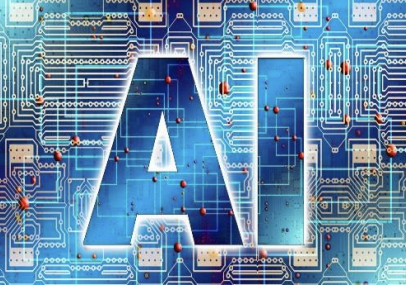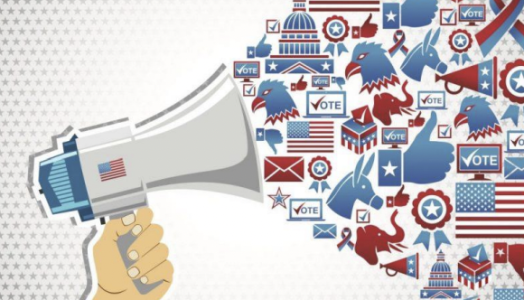The views expressed are those of the author and do not necessarily reflect the views of ASPA as an organization.
By Carvis Durr
November 13, 2023

In the present era, AI has become an integral part of our lives. It has penetrated every aspect of our lives, from our favorite social media platforms and streaming services to the music we love. Thanks to technology, our interests and preferences are being catered to, creating a community that revolves around our likes and dislikes. This phenomenon is known as technological determinism, which suggests that technology shapes our society. The rise of industrial technologies like the Internet and social media has brought people closer together. It has made communication faster, easier and more accessible to everyone. At the same time, the use of robots and online shopping sites has revolutionized the way we shop. These sites suggest products that align with our previous purchases and preferences, making our shopping experience more personalized and convenient.
Given this, why not have a similar system that recommends political candidates to vote for? Imagine if an AI system could analyze our political views and suggest candidates representing our interests and values. This would save us time and effort and ensure that we make informed decisions while casting our votes. However, such a system would require vast data and a highly sophisticated algorithms to ensure the recommendations are accurate and unbiased. Despite the challenges, the potential of AI in the political sphere is worth exploring, as it can revolutionize how we participate in the democratic process.
AI Usage for Potential Candidates
Our society is diverse, and political preferences vary between individuals. Some people are loyal to a particular political party, while others are independent or swing voters. To win public office, politicians must appeal to independent voters and sway them as they are a crucial voting bloc. Unfortunately, politicians often receive support from lobbyists or individuals with vested political interests, which can alienate voters with differing beliefs, values or policies. Nonetheless, AI technology can help address this issue by analyzing data to identify similarities between politicians and voters, enabling politicians to tailor their messages to a broader range of voters.
In contemporary times, AI technology is an invaluable tool that can evaluate the coherence of politicians’ and voters’ values, beliefs and policies. With its advanced data analysis capabilities, AI can confidently identify inconsistencies and gaps in the statements and actions of political actors. This promotes transparency and builds trust in the political process, which is critical today, where citizens demand accountability and honesty from their elected representatives. By leveraging AI technology, politicians can better understand the needs and concerns of their constituents, and voters can feel more confident in their choices at the ballot box. This can help strengthen democratic processes and promote societal political stability.
AI and Technological Determination
The current age is characterized by constant marketing messages that bombard the public. Political parties face the daunting challenge of standing out amidst the noise in such an environment. While technological determinism asserts a particular relationship between technology and society, a sociological approach to technology disputes these assumptions.
Politicians are increasingly adopting AI-powered tools to overcome this challenge and improve the likelihood of voters responding positively to political messages. These tools help political parties target voters with news that is relevant to them. Like the strategies employed by retailers, hotels and banks, politicians also use retargeting to track voters’ online behavior and preferences. This includes tracking their comments, website visits, product research and article preferences. With the help of AI-powered tools, this information is used to tailor their messages and better connect with their audience.
Using AI-powered tools is becoming an essential part of the political landscape. By leveraging the power of these tools, political parties can improve their messaging and better engage with voters, resulting in more successful political campaigns.
AI and the Community

This situation underscores the importance of examining the cultural influence on how technology affects our society and how societal values shape technological advancements. Recognizing that technology is not developed in a vacuum but is deeply intertwined with cultural and social factors is crucial. Therefore, we must examine the social dynamics at play when technology and culture intersect rather than isolating the study of technology alone.
By understanding the complex relationship between technology and culture, we can better anticipate the potential implications of technological advancements and ensure that they align with our values and societal goals. Moreover, we can work to ensure that the benefits of emerging technologies are accessible to all members of society, regardless of their social, economic or political status.
Author: Meet Carvis C. Durr, a Ph.D. student and Graduate Teaching Associate at the University of Central Florida’s School of Sociology and Statistics. Carvis holds a Bachelor’s degree in Public Administration and two Master’s degrees in Business Administration and Leadership/Human Resource Development. Carvis is a member of the Scholar Strategy Network. Follow Carvis on Twitter @Iamcarvis or check out his professional profile on LinkedIn.







